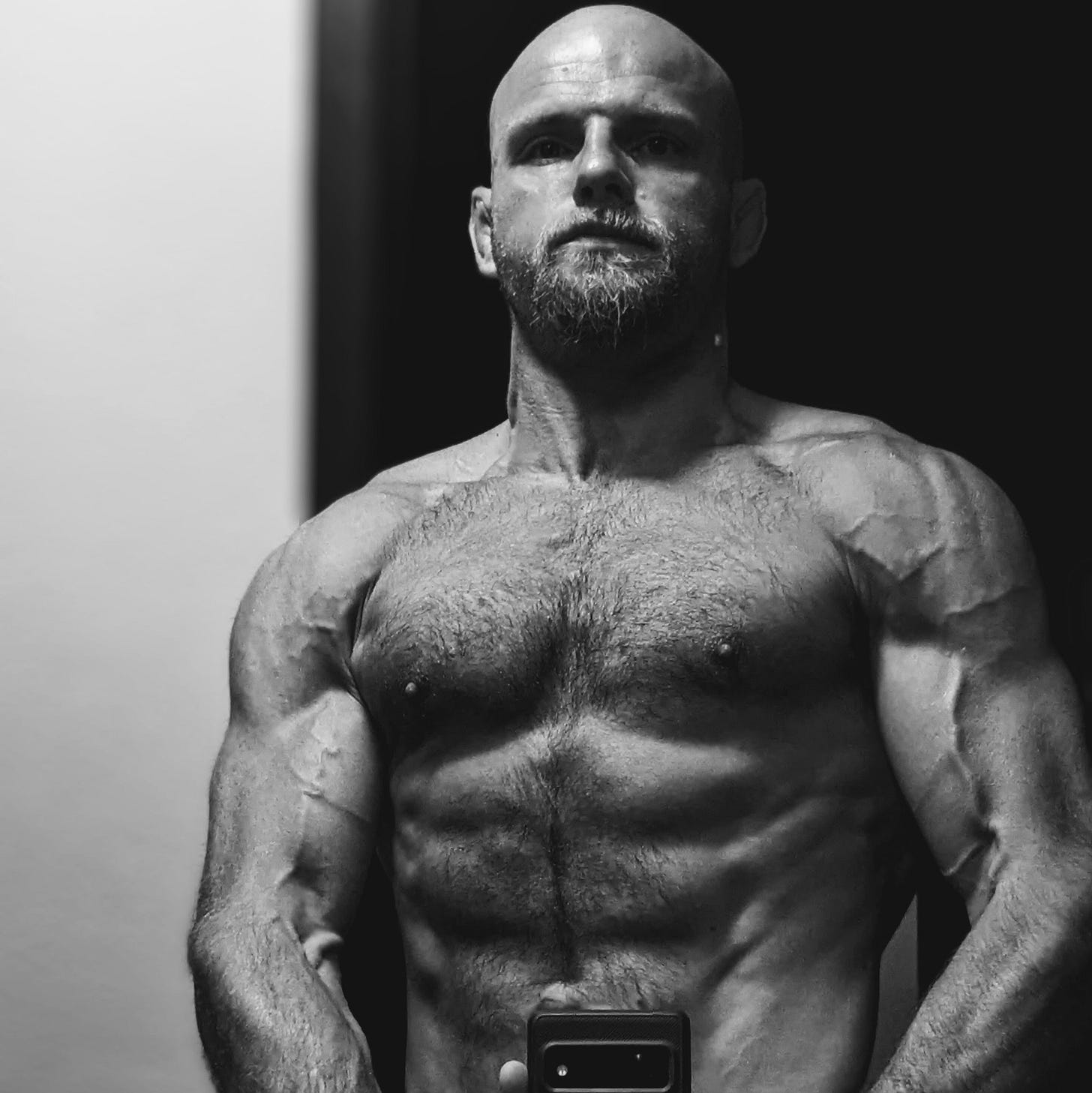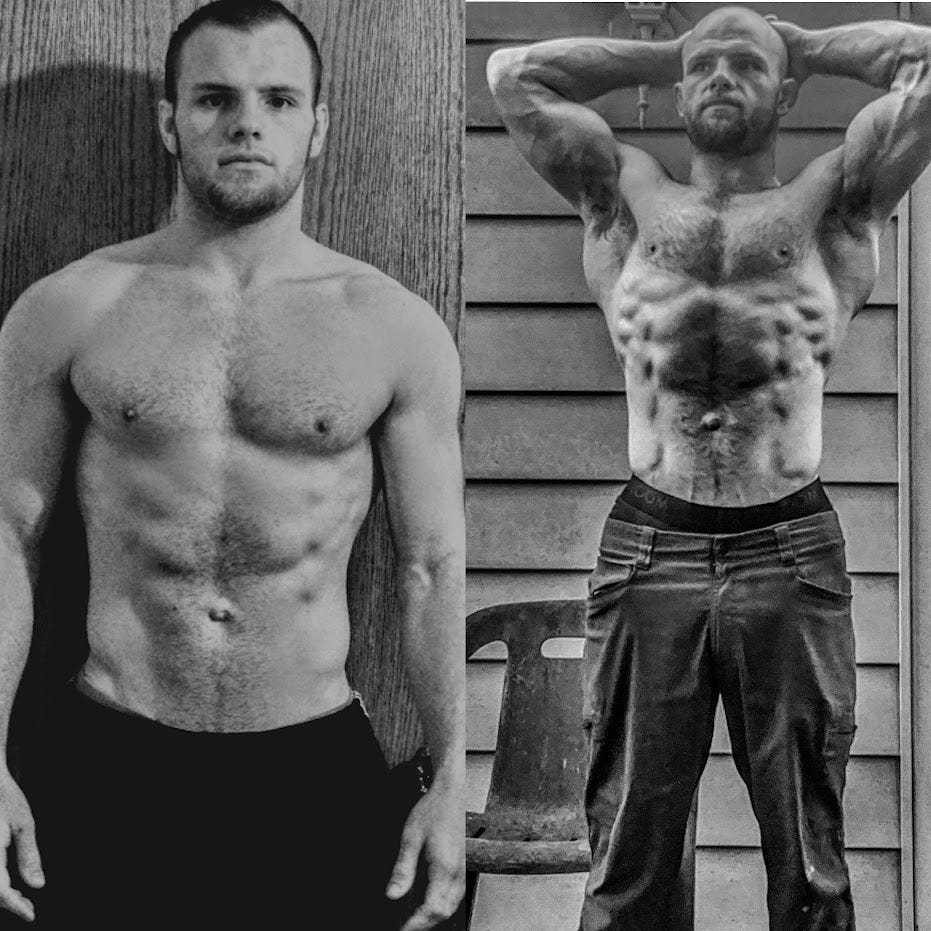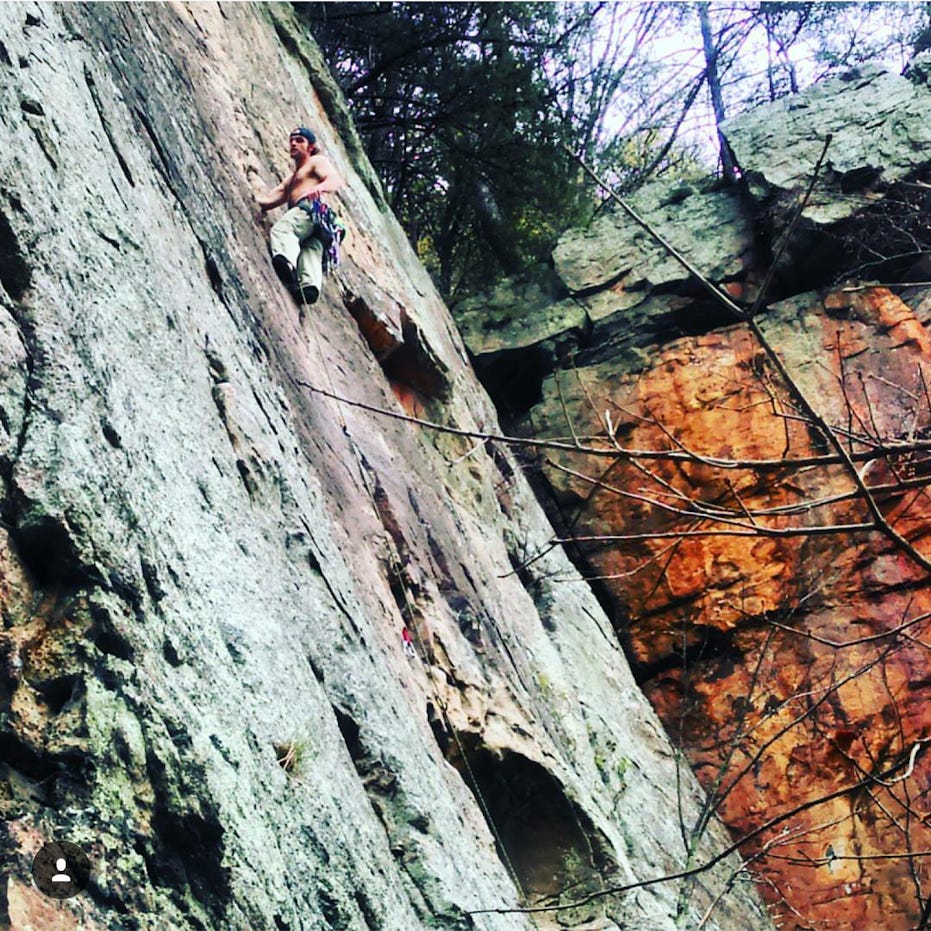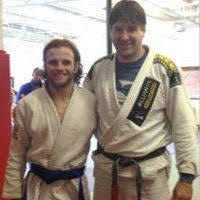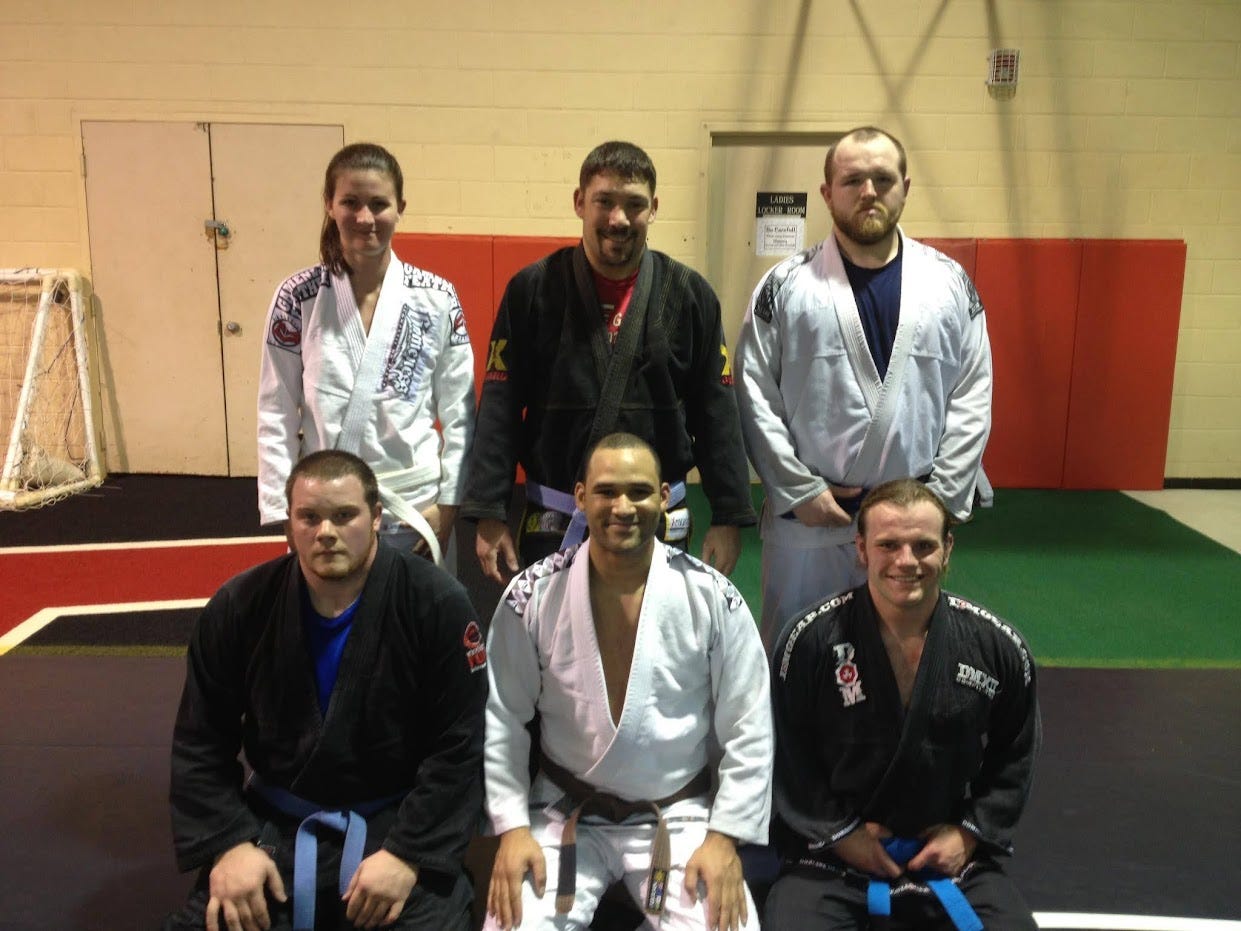Prioritizing Processes and Relationships: A Guide to Authentic Success
Decoding the myths and skepticism behind 10-year challenges.
Winning costs everything, more than most can imagine, let alone afford. No amount of bumper stickers or motivational memes will pay the tab for you. Eventually, all debts get settled. When you look in the mirror, or at yourself honestly, you know the truth.
People have asked recently if I sell pre-written training plans. The answer is “no.” Here’s a story to illustrate why not.
I began developing my “online presence” in 2020. An early effort included a publication series called the “Kombat Kitchen.” It was a series of three adult (and one youth) progressively tiered training programs. Each volume was a 20 page e-book that included diet, exercise, and mindfulness prescriptions for a 30-day challenge. Combined they had about 400 references.
Together they sold single digit copies. The moral of the story for me is that even when people get what they ask for, it’s not always what they want, and even less likely to be what they need.
“What do you mean, I still have to read 20 pages? Why can’t you just tell me what to do?
Earlier this year I posted my 2023 Strength & Conditioning Benchmarks on the whiteboard at our gym. It included 6 different movement / energy system categories and a three-tier achievement scale for each category for both men and women:
Expected,
Most Bang-for-your-Buck, and
Diminishing Returns
How many people do you think tested themselves against each of the 6 metrics? None. A few months later I flipped the sheet over and wrote just a single metric (capacity):
10 minute Bike Test: Goal = maximum calories in 10 minutes
I got about 10 takers within the first month, ranging from soccer moms to their children, to competitive fighters and lifters; weighing 100 - 300 lbs. A few more participants have trickled in since then.
What’s the difference? One plan was “more perfect” while the other was “better” because it actually produced results.
There is a business expression that people tend to overestimate what they can achieve in 1 year and underestimate what they can achieve in 5 years. In my opinion this scales to a variety of intervals. Many people, at the start of the year, bite off way more than they can chew for 1 month and are worse off than when they started by spring.
By contrast, 4 - 5 years is enough time to develop real skill and completely reinvent yourself — think about the duration of university or vocational training.
In fact, enough skill can be developed that you begin to see the necessary exclusion success requires and the diminishing returns offered by another 5 years in the same direction. The question is, will you flinch and make up any number of reasons for turning tail in a different direction?
If you’ve spent 5 years of dedicated and specific practice at something, and someone who would actually know, or is who’s opinion is worth noting, hasn’t told you you’re world-caliber, you probably don’t have it in you.
Can you still get a lifetime of enjoyment and perpetually improve? Of course you can! I would encourage you to do so! But, you’re not winning a world championship.
I spent 5-6 years wandering (wondering?) in the mountains and amassing hundreds of ascents. I achieved moderate success, mostly because I was stubborn and resilient. I was about it; the “dirtbag life”, the hardman antics, all of it. For the reasons above, and of course many more, I eventually had to decide whether I wanted to go past a “purple belt” level of climbing or go full force back in to BJJ.
You all know which direction I went, but the choice wasn’t easy, nor was the road that followed — in either direction I suspect.
Back to the present, I didn’t “rebuild” my fitness over the past 18 months by:
Going harder or doing more in directions I was already comfortable,
Trying to convince myself that a minimalist effort towards weaknesses would somehow overwrite ongoing maladaptation; or
Thinking in terms of days or weeks.
Experience is an expensive teacher and worth every penny. I can assure you, everything costs, and everyone pays, but not everyone can afford success. Similarly, no one stays on top forever. Thus, there’s an inherent paradox in that high levels of performance (in any arena of life) are inherently unsustainable and in many cases antithetical to “longevity.”
“Get it done while you can, because no one gets out alive.”
~ NonProphet “Capacity” Manual
How do you know if the next 10 years will be “worth it?” The truth is that you probably won’t until it’s too late.
Specific prescriptions pale in comparison to longer “process” arcs. There isn’t a magic number of sets and reps (literal or metaphorical) that will guarantee success. The only guarantee is that you will have to invest in the process so deeply that it almost certainly won’t be worth it.
While writing this post I pooled several “throwback” pictures to illustrate various 5 and 10 year intervals. It occurred to me that I don’t have many pictures before 2018. In fact, about 75% of the pictures on my Google Photos backup are from 2019 - 2022 and the span from 2006 - 2016 is only about 10%.
I’m sure this is partially due to the improvements in smartphone camera technology since then, however, it also made me think, “What was my life like back then?”
If we flip back one decade (circa 2013) the immediate answer that comes to my mind is, “I was a lot happier.” By contrast, during the “pandemic era” — those 75% of pictures and videos — I was seduced by the allure of “influencer status”; which feels like an insatiable black hole.
It’s not completely fair or accurate to say that that time was a waste. I’ve met at least a few great and inspiring people that I otherwise would not have if it weren’t for social media.
However, it also doesn’t seem like a coincidence that I was happier when I was more focused on doing wild shit with my friends (in the mountains or elsewhere) than trying to appease the technocratic gods and thinking I could ever “win” an argument in a comments section.
Sooner or later we find the path we’re meant to be on, whether it’s what we thought we wanted or not. I didn’t plan for many things in my life to go the way they did, particularly over the last 10 years.
Recently, I was jokingly (or perhaps not) ranting to a bartender about having fantasies of quitting my day job as a therapist (for the past 8 years) and instead coaching fitness and jiu jitsu full time. Like all good bartenders, they saw through the veil and at least told me to my face that I would “still end up being a therapist one way or another.”
Truly, where we allow our attention to be captured, so defines our reality and ourselves.
“It’s funny that we think changing our behavior makes us healthy when the only truth is when we are healthy, our behavior changes.”
~ Brian Mackenzie


